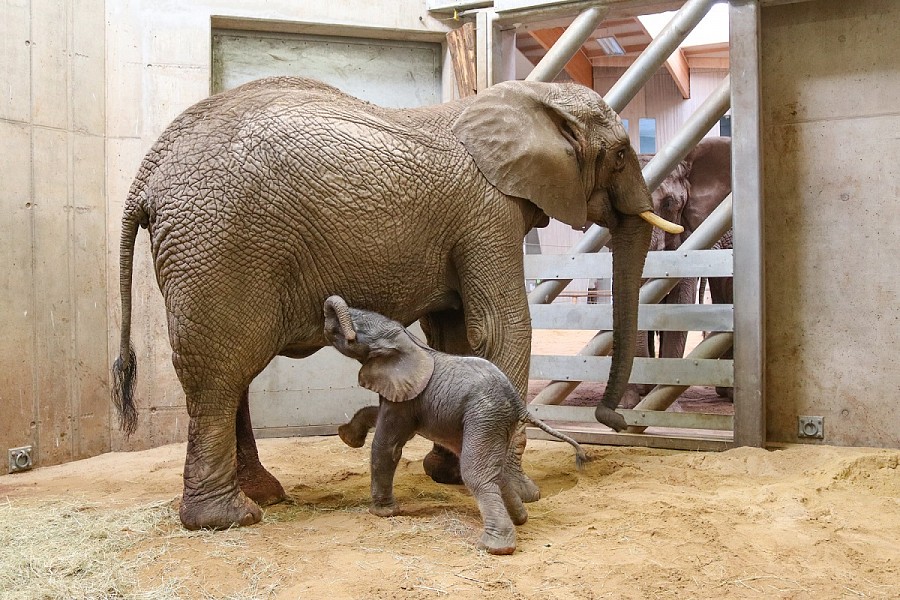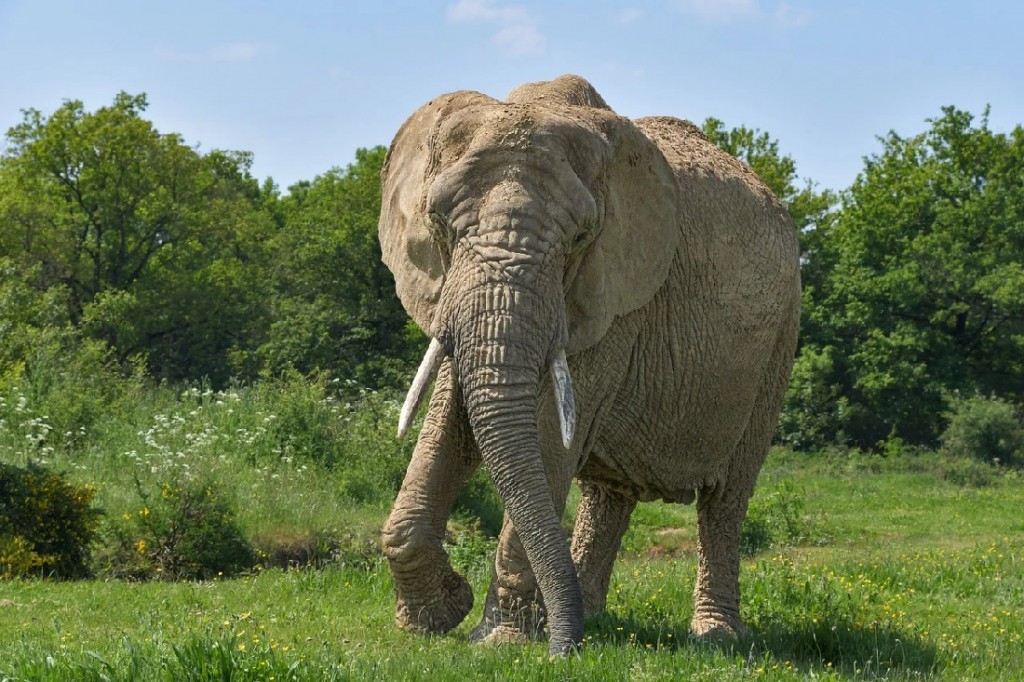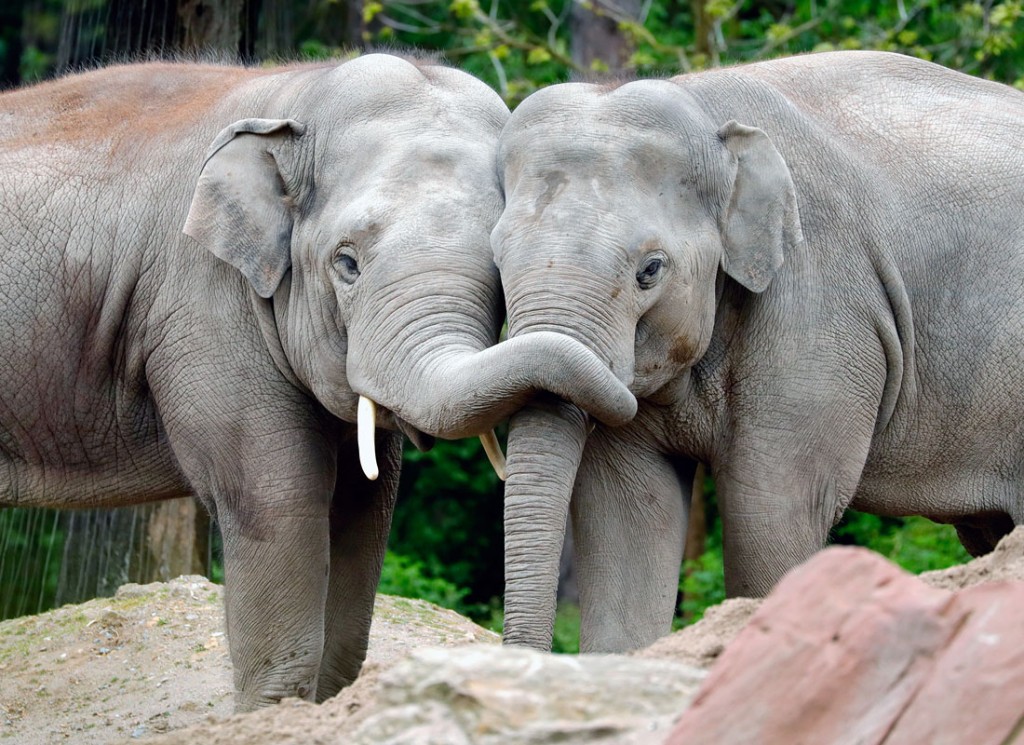November 26, 2021
British elephants will go to their historical homeland

The history of Great Britain's "relations" with elephants began almost 800 years ago, in 1255, when the first elephant was presented to Henry III by the French king Louis IX. Currently, 51 individuals live in 11 English zoos.
The UK became the first country in the world whose residents paid attention to animal rights. Back in 1822, the law "on the treatment of horses and cattle" was adopted here, which provided for a fine of up to 5 pounds or a two-month sentence for "beating, poor care or cruel treatment of any horse, mare, gelding, mule, donkey, bull, cow, heifer, bull, sheep or other cattle." In 1911, the country adopted a general law on the protection of animals.
Since then, the legislation has been amended more than once. The Animal Protection Act of 2006 officially recognized that animals can feel pain and suffering.In June 2021, a new law came into force, according to which animals are intelligent beings. Here are a few points from it:
- prohibit the export of live animals for slaughter and fattening;
- ensure the protection of herds from attacks by stray dogs;
- toughen the fight against smuggling and theft of purebred puppies;
- ban electronic collars for pet training;
- prohibit the maintenance of primates at home;
- prohibit the hunting of waterfowl using lead ammunition;
- improve the conditions of keeping animals in zoos.
A ban on the import of hunting trophies and souvenirs from derivatives of endangered animals and the sale of ivory has been introduced. The import and export of shark fins is also prohibited.
Now the British are planning to adopt a new legislative act prohibiting the captivity of the largest land animals – elephants. The initiator was the Royal Society for the Prevention of Cruelty to Animals (Royal Society for the Prevention of Cruelty to Animals). Members of the society believe that for "intelligent animals", especially elephants, keeping in captivity is a serious psychological trauma. It leads to the development of many diseases in them, not only mental, but also physical. Therefore, the average life expectancy of an elephant in captivity is about 17 years, while in the natural environment they live up to 50.
None of the existing zoos can provide elephants with a sufficiently spacious enclosure. In nature, they can walk more than ten kilometers a day in search of food and water, while in the zoo their habitat is limited to several hundred square meters. In addition, elephants are social animals, they live in herds and need communication. Providing a large enough housing for a whole herd of elephants is an almost impossible task in a zoo. And left without communication, elephants suffer cruelly. A striking example is the elephant Flavia from the zoo of the Spanish city of Cordoba, who received the nickname "the saddest elephant in the world". She lived in the zoo from the age of three and suffered from severe depression, which, according to psychologists, was caused by the fact that she was weaned from her native herd in early childhood and forced to live her life alone. In fairness, I must say that Flavia lived for quite a long time, 47 years, but this life was clearly sad. Animal rights activists sought to transfer the elephant to one of the safari parks where she could communicate with her relatives, but they did not have time to implement this plan because of her death in 2019.
Another elephant was more fortunate, who was also nicknamed "the saddest elephant in the world." His name is Khaavan, he was born in Sri Lanka, but lived in Pakistan for many years. In 1990, a female Saheli was brought to him, who died in 2012. Khaavan was bored, he could shake his head for hours from boredom and loneliness. In 2020, animal rights activists succeeded in moving the elephant to a Cambodian nature reserve. The move took place a year ago, and, according to the president of the reserve, Sok Hong, Khaavan is already showing interest in one of the three elephants living there.

As for England, 13 elephants living in the Hoults Wild Animal Park near Canterbury (Kent) are preparing to move there. In 2022, as part of the largest project to return the animals to their natural habitat, they will be transported to a secret location in Kenya, where they will spend six months getting used to the environment, and then released.
The Aspinall Foundation, headed by the wife of the British Prime Minister Carrie Johnson, reported that this is the first time such a large herd has returned to the wild
We sincerely wish the British elephants a successful flight and hope that they will be much happier in their new place. Let's hope that other countries will soon follow the example of British legislators and conservationists, and the keeping of these beautiful intelligent animals in captivity for entertainment and profit will soon stop.

Read more
July 31, 2024
April 12, 2024
April 5, 2024